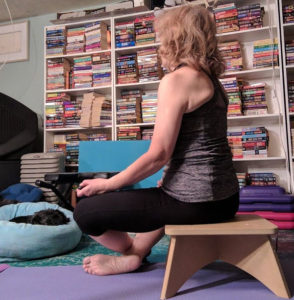4 ways to deal with stress

Many people are feeling anxious and stressed these days. In fact, everyone I’ve talked to lately is feeling it. The effect of long-term stress on our bodies can actually be harmful. Long-term stress can negatively impact our blood pressure, heart rate, sleep and even our eating habits. (See my article about both long-and short-term stress.)
We naturally try to avoid stress, but when we’re feeling overwhelmed by things that are outside of our control, we feel even more sensitive to outside factors.
There are some ways to deal with this stress, though.
Calm the stress energy
Engage in mindfulness techniques to divert your attention away from the anxiety. Try meditation or do an exercise session. This will help to reduce your anxiety in the short run, but it won’t go away.
Pay attention to your thoughts
This technique engages mindfulness techniques as well. But, rather than engage in these techniques after you feel stress and anxiety, try to recognize your thoughts going in that direction before they lead you on that hamster wheel.
Take some control
One reason that you’re feeling elevated stress is that you feel that there is nothing you can do. This leads to feelings of helplessness, and increased stress and anxiety.
A way to alleviate those feelings of helplessness is to find some small thing that doesn’t take a lot of thought or energy, and cross it off your to-do list. You won’t mess it up since it doesn’t require a great deal of effort, but just the act of crossing something off your list can ease some of your stress.
Take positive steps
Here’s where it gets a little tougher. You know how good it felt to knock something off your to-do list? It will feel even better to take steps toward a bigger goal.
When you’re dealing with anxiety, your avoidance motivation kicks in. Thoughts are racing around in your head, and you want to do anything you can to avoid those thoughts. And when you’re in this thought pattern, you’ll see all the flaws and problems that there could be in this course of action. So it can be difficult to take any action with those thoughts running around in your head.
But when you actually do start putting some energy toward that goal you can start to see the outcome you want. This is hard, though, because you have to overcome those churning thoughts in your head. Once you do you’ll start to become happier and you can start to anticipate that positive outcome.

